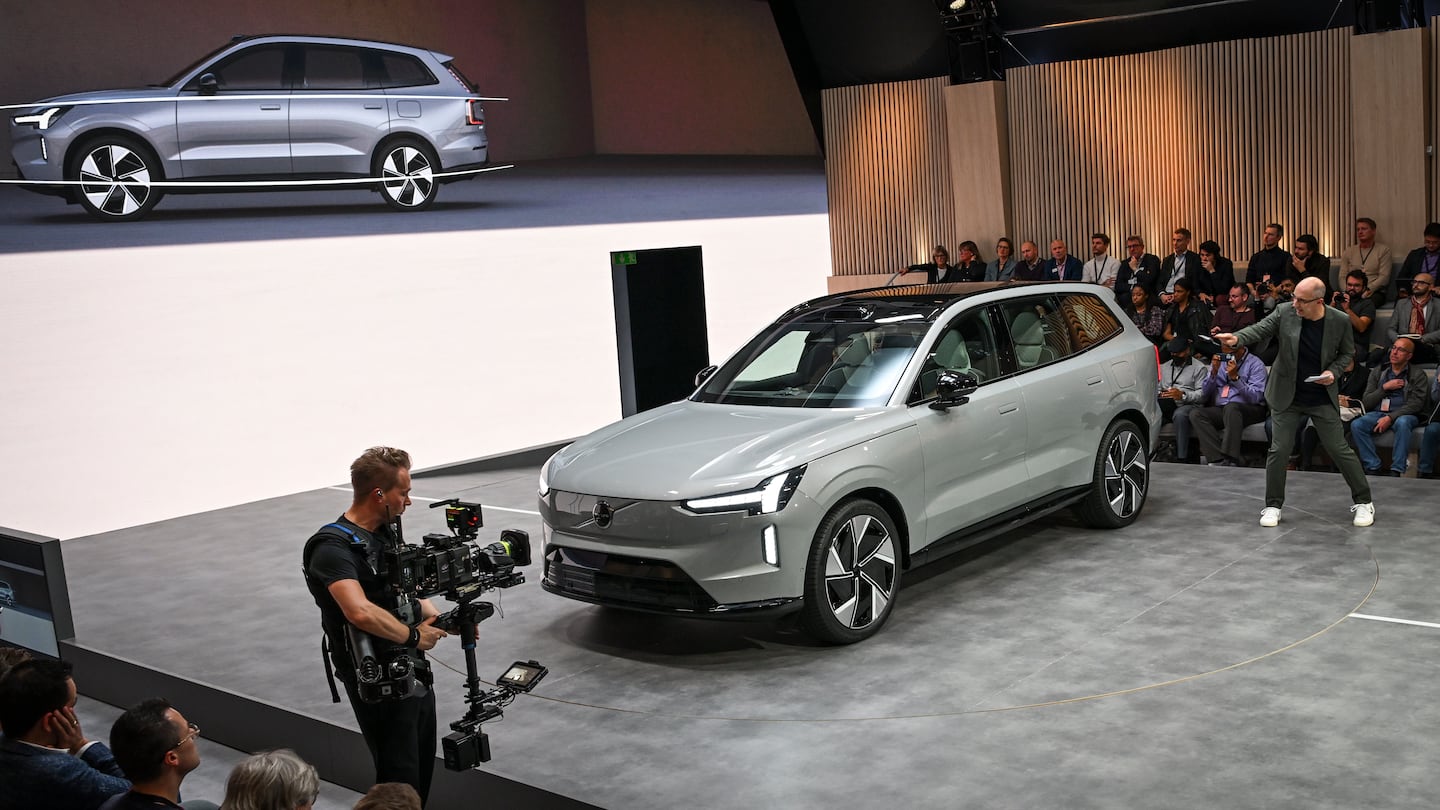EV Mandates Face Renewed Opposition From Car Dealerships

Table of Contents
Financial Investments and Infrastructure Concerns
Dealerships are highlighting the substantial upfront investment required to adapt to the EV revolution. The transition isn't merely about selling a different type of car; it demands significant infrastructural changes and financial commitment.
- Necessary upgrades include: installing high-power charging stations, specialized EV servicing equipment (capable of handling high-voltage systems and battery diagnostics), and retraining staff on EV technology and maintenance. This represents a considerable capital expenditure for dealerships, especially smaller independent ones.
- Return on investment (ROI) uncertainty: Fluctuating EV sales and market unpredictability make it difficult to accurately assess the ROI of these investments. The current market volatility adds further risk to these already significant capital outlays.
- Lack of government support: Many regions lack sufficient government support for infrastructure development, leaving dealerships to shoulder a disproportionate share of the financial burden. This uneven playing field exacerbates the concerns of smaller dealerships.
The high cost of EV inventory compared to internal combustion engine (ICE) vehicles also impacts profitability. EVs often have higher sticker prices, resulting in larger capital tied up in inventory. This, coupled with the potentially slower sales cycles compared to ICE vehicles, creates significant cash flow challenges for many dealerships. Government incentives and support are crucial to ease this transition and encourage the necessary investment. Targeted financial aid and tax breaks could significantly alleviate the financial pressure on dealerships embracing EV sales.
Consumer Demand and Market Readiness
Dealerships argue that consumer demand for EVs isn't yet robust enough to justify the rapid transition mandated by governments. Several factors contribute to this skepticism:
- Limited consumer awareness: Many consumers remain unaware of the benefits of EVs or lack understanding of charging infrastructure limitations. Addressing this knowledge gap through effective public awareness campaigns is crucial.
- Range anxiety and charging times: Concerns about EV range and charging times remain significant barriers to widespread adoption. Improvements in battery technology and charging infrastructure are essential to alleviate these anxieties.
- High initial purchase prices: The higher initial cost of many EVs compared to gasoline-powered vehicles is a major deterrent for many potential buyers, particularly those on tighter budgets.
The current market share of EVs, while growing, still lags significantly behind government targets in many jurisdictions. This gap highlights the need for a more nuanced approach to EV mandates, one that acknowledges the realities of consumer behavior and market dynamics. Consumer education is paramount; addressing concerns about range, charging, and price through clear and accessible information is essential to bridging the gap between mandate and market reality.
The Impact of the Used EV Market on Dealerships
The used EV market presents unique challenges for dealerships. Accurate battery health assessments are critical for determining resale value and avoiding potential warranty issues. This requires specialized equipment and trained personnel, adding further complexity and cost. Clear guidelines and standardized procedures for handling used EVs are needed to ensure fair pricing and protect both dealerships and consumers. The volatility of used EV pricing also directly impacts dealership profitability, creating another layer of uncertainty.
Training and Workforce Challenges
Dealerships express significant concerns about the need for extensive training for sales staff and technicians to handle EV technology.
- Specialized knowledge: Servicing and repairing EVs requires specialized knowledge of high-voltage systems, battery technology, and electric motor mechanics.
- Cost of training: The cost of comprehensive training programs is substantial, and potential staffing shortages could further exacerbate the issue.
- Lack of standardized training: The absence of standardized training materials and programs creates inconsistencies in the quality of EV expertise among dealerships.
Government support in providing training resources and incentives is vital for addressing this skills gap. Subsidized training programs, partnerships with technical schools, and the development of standardized curricula could equip dealerships with the necessary expertise to effectively service and sell EVs. These training gaps, if not addressed, could seriously hinder the effective adoption of electric vehicles.
The Role of Government Policy in Addressing Dealer Concerns
Current government policies aimed at supporting EV adoption need critical evaluation to determine their effectiveness in addressing the concerns of car dealerships. A more collaborative approach is needed, fostering open dialogue and partnerships between policymakers and the dealership industry.
Recommendations for more effective government policies include:
- Extended timelines for mandates: Allowing dealerships more time to adapt to the changes would reduce the financial strain and allow for a more gradual transition.
- Targeted financial incentives: Expanding financial support to cover infrastructure upgrades, training programs, and inventory management would significantly ease the burden on dealerships.
- Robust infrastructure development plans: Government-led initiatives to expand charging infrastructure and improve grid capacity would help address consumer concerns and increase demand for EVs.
Conclusion:
The opposition to EV mandates from car dealerships underscores the intricate complexities of transitioning to a fully electric automotive landscape. Addressing their financial concerns, ensuring consumer readiness, and providing adequate training and support are crucial for a successful transition. Government policies must be realistic and collaborative, acknowledging the practical challenges faced by car dealerships. Failure to address these issues could hinder the widespread adoption of EVs and ultimately delay the achievement of climate goals. Finding a balance between ambitious EV mandates and the practical concerns of the car dealership industry is essential for a smooth and effective shift towards a cleaner transportation future. A more comprehensive and collaborative approach to implementing EV mandates is urgently needed.

Featured Posts
-
 Absurdistisch Jiskefet Eert Met Nipkowschijf
May 16, 2025
Absurdistisch Jiskefet Eert Met Nipkowschijf
May 16, 2025 -
 Pulaski Boil Water Advisory What Residents Need To Know
May 16, 2025
Pulaski Boil Water Advisory What Residents Need To Know
May 16, 2025 -
 Action Bronson Responds To Jaylen Brown Confusing Him With Luke Combs
May 16, 2025
Action Bronson Responds To Jaylen Brown Confusing Him With Luke Combs
May 16, 2025 -
 Wade Weighs In Jimmy Butlers Exit From The Miami Heat
May 16, 2025
Wade Weighs In Jimmy Butlers Exit From The Miami Heat
May 16, 2025 -
 Tam Krwz Ke Jwtwn Pr Pawn Rkhne Waly Khatwn Mdah Awr Adakar Ka Rdeml
May 16, 2025
Tam Krwz Ke Jwtwn Pr Pawn Rkhne Waly Khatwn Mdah Awr Adakar Ka Rdeml
May 16, 2025
